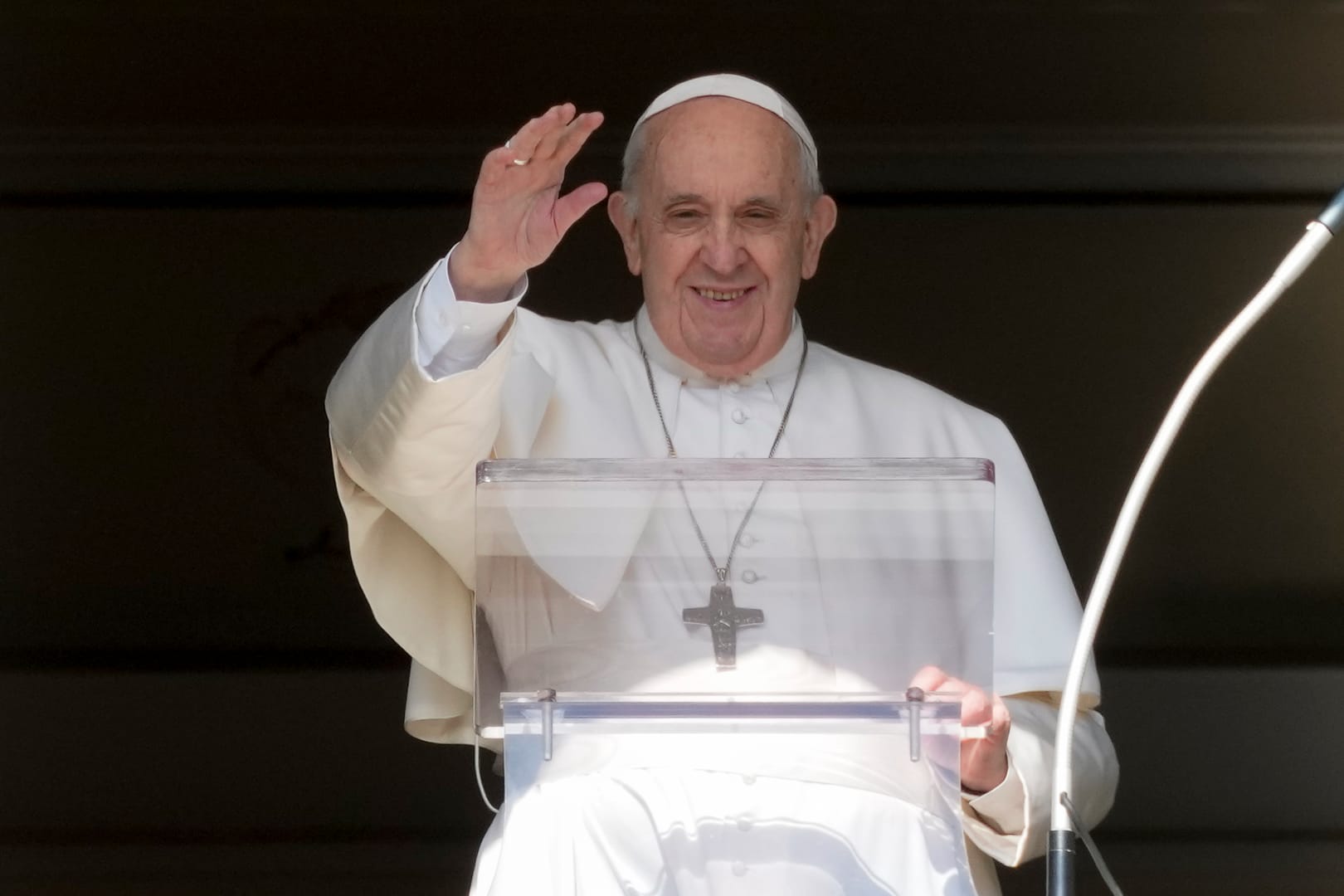ROME — Pope Francis Sunday pleaded for a halt to the practice of returning migrants rescued at sea to Libya and other unsafe destinations, where, the pontiff said, they suffer “inhumane violence,” while promising those forced to flee their country that he “never forgets” them.
“I express my closeness to the thousands of migrants, refugees and others in need of protection in Libya: I never forget you, I hear your cries and pray for you,” said Francis, the son of migrants himself, at the end of his Sunday noontime Angelus prayer.
“So many of these men, women and children are subjected to inhuman violence,” he said.
The pontiff called on the international community to keep its promises to seek “common, concrete and lasting solutions” when it comes to managing migratory flows in Libya and throughout the Mediterranean region.
As the pope was issuing his appeal, hundreds of migrants were desperately trying to reach Europe in overcrowded boats, or were waiting in the “refugee camps”- which the pope has described as “true concentration camps”- set up in Libya, which often see them fall prey to human traffickers.
“We need to end the return of migrants to unsafe countries and prioritize rescuing lives at sea with predictable rescue and disembarkation devices, guarantee them decent living conditions, alternatives to detention, regular migration routes and access to asylum procedures,” he said.
“Let us all feel responsible for these brothers and sisters of ours, who have been victims of this very serious situation for too many years,” Pope Francis said.
Though the situation for migrants in Libya has been dire for years, it’s gotten worse in recent months, with over 5,000 asylum seekers being detained in the western town of Gargaresh earlier this month following a massive crackdown by the North African nation.
The detained migrants were held in overcrowded detention centers where observers say torture, sexual assault and other abuses are rife. U.N.-commissioned investigators reported earlier this month that abuse and ill treatment of migrants in Libya represent crimes against humanity. They also called for an inquiry into “unnecessary and disproportionate” uses of force by Libyan security forces to detain migrants, shooting dead some of those trying to escape.
While most media attention has thus far been focused on migrants trying to cross the Mediterranean, Libya is also a destination in itself.
Francis’ appeal came as the leaders of the European Union are struggling to overcome differences on how to handle asylum seekers.
While total immigration numbers are low compared to the union’s population of 450 million, resentments about new arrivals nevertheless feeds support for nationalist and populist groups across the EU.
According to date from the U.N, 5,100 migrants arrived to Europe after crossing the Mediterranean, and several thousand have also crossed to the EU countries neighboring Belarus – including Poland, Lithuania and Latvia, all of which have a closed-borders policy.
Belarus President Alexander Lukashenko has denied allegations from the EU, that claim Minsk is using migration as a form of hybrid warfare designed to put pressure on the European Union against sanctions imposed on this country.
But according to Reuters, EU border agency Frontex said this month that almost 134,000 people had tried to cross into the bloc from all the directions so far this year, nearly 50 percent above the figures reported for the first nine months of 2019, before the COVID-19 pandemic.
European Commission chief Ursula von der Leyen signaled that “that there will be no funding of barbed wire and walls.”
Migrants and asylum seekers, some of whose claims are pending, have been targeted by heavy-handed operations by Libyan security forces, U.N. human rights spokesperson Marta Hurtado told a U.N. briefing in Geneva earlier this month.
“These have resulted in killings and serious injuries, a rise in detentions in appalling conditions, as well as expulsions of individuals to countries in sub-Saharan Africa without due process,” Hurtado said.
The Vatican has long had a pro-migrant stance, with the first World Day of Migrants and Refugees celebrated 107 years ago. Though the actual date changes from year to year, it’s been marked every January since Pope Pius X instituted it.
Since his election, Pope Francis has spoken in favor of welcoming and integrating migrants, while helping those who want to remain in their countries live a dignified life, several times. He’s gone beyond words by meeting with migrants and refugees countless of times, helping the community of Sant’Egidio set up humanitarian corridors, and by personally flying 12 refugees back to Rome after a day-visit to the Greek island of Lesbos with Orthodox Patriarch Bartholomew of Constantinople.
RELATED: Refugees, migrants given safe haven by Vatican weep with gratitude
These migrants, and several more families that have arrived in Italy ever since, always with the sponsorship of the pontiff or his charitable arm, Polish Cardinal Konrad Krajewski, have found asylum in Europe. Francis has also urged every parish, convent and monastery in the continent to help support at least one migrant family.
Back in 1952, Pope Pius XII, the modern pope who faced arguably the worst migrant crisis, with an estimated 80 million people forcibly displaced between 1939 and 1958, used the passage from the Gospel of Matthew that says that shortly after Jesus’ birth, the Holy Family was forced to leave for Egypt by night, in order to flee the persecution of King Herod, as the backbone of that year’s migrants and refugees message.
The family of Nazareth in exile is “the model, the example and the support of all emigrants and pilgrims of every age and every country, of all refugees of any condition who, compelled by persecution and need, are forced to abandon their homeland, their beloved relatives, their neighbors, their dear friends, and move to a foreign land,” Pius XII wrote.
Follow Inés San Martín on Twitter: @inesanma












